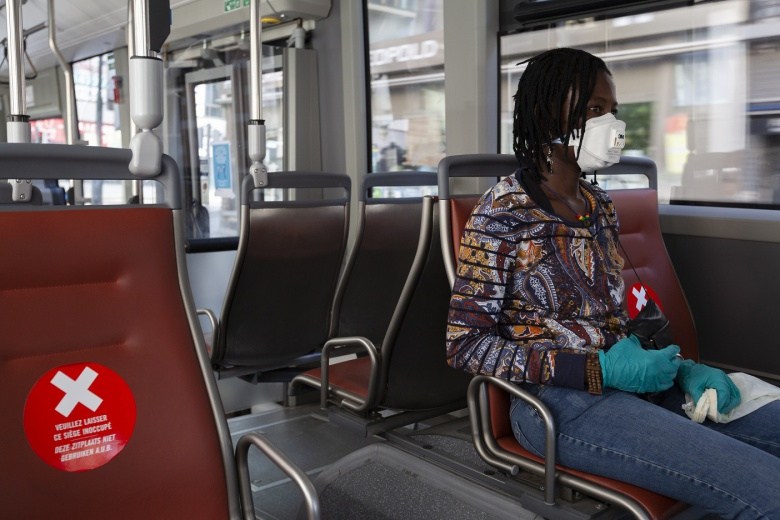591 new people have tested positive for the new coronavirus (Covid-19) in Belgium, confirmed the Federal Public Health Service during a press conference on Friday.
This brings the total number of cases in Belgium, since the beginning of the pandemic, to 52,011. The total reflects all people in Belgium who have been infected, and includes confirmed active cases as well as patients who have since recovered, or died from the consequences of the virus.
362 of the newly-infected people live in Flanders, 143 live in Wallonia, and 57 live in Brussels. The FPS does not yet have further information on the place of residence of 29 other people. "The trend of new infections is still decreasing, by about 5% per day over the last 7 days," said professor Steven Van Gucht.
21,908 coronavirus tests have been taken in Belgium in the past 24 hours, of which 12,315 in the classical labs, and 9,593 by the federal testing platform.
108 new patients were admitted to the hospital in the last 24 hours, and 221 were discharged. The total number of people in hospital because of the coronavirus at the moment is 2,555. "This trend, too, is still decreasing, by about 6% per day," Van Gucht said.
Of the patients in the hospital, 508 are in the intensive care unit. "As with the other trends over the last 7 days, this trend also decreasing by about 5% per day," he said.
Related News
- Coronavirus: Brussels contact tracers aim to reach 1,000 people a day
- Impossible to check if someone is only seeing 4 people, police say
- Experts and politicians to take part in live 'corona debate'
107 new deaths have been reported, bringing the total number of people who died because of the coronavirus to 8,521. "The trend in the number of newly-reported deaths also decreases by about 5% per day," Van Gucht said.
"Hospital figures are a rather late indicator of the evolution of the virus, because only we can only see this increase about 2 weeks after the initial infections," said Van Gucht. "We are also observing the absenteeism from work due to illness. We saw a large peak around mid-March, but we also see that now, the figures have dropped back to the level they were at in previous years," he added.
"Secondly, we follow the evolution in the number of consultations with GPs for flu-like symptoms. We saw a first peak, which was due to the flu virus as we knew it, influenza. The second peak is due to coronavirus. However, 89 of these consultations per 100,000 inhabitants were recorded, which is rather low and still decreasing, so the virus is evolving in the right direction," Van Gucht added.
Maïthé Chini
The Brussels Times

